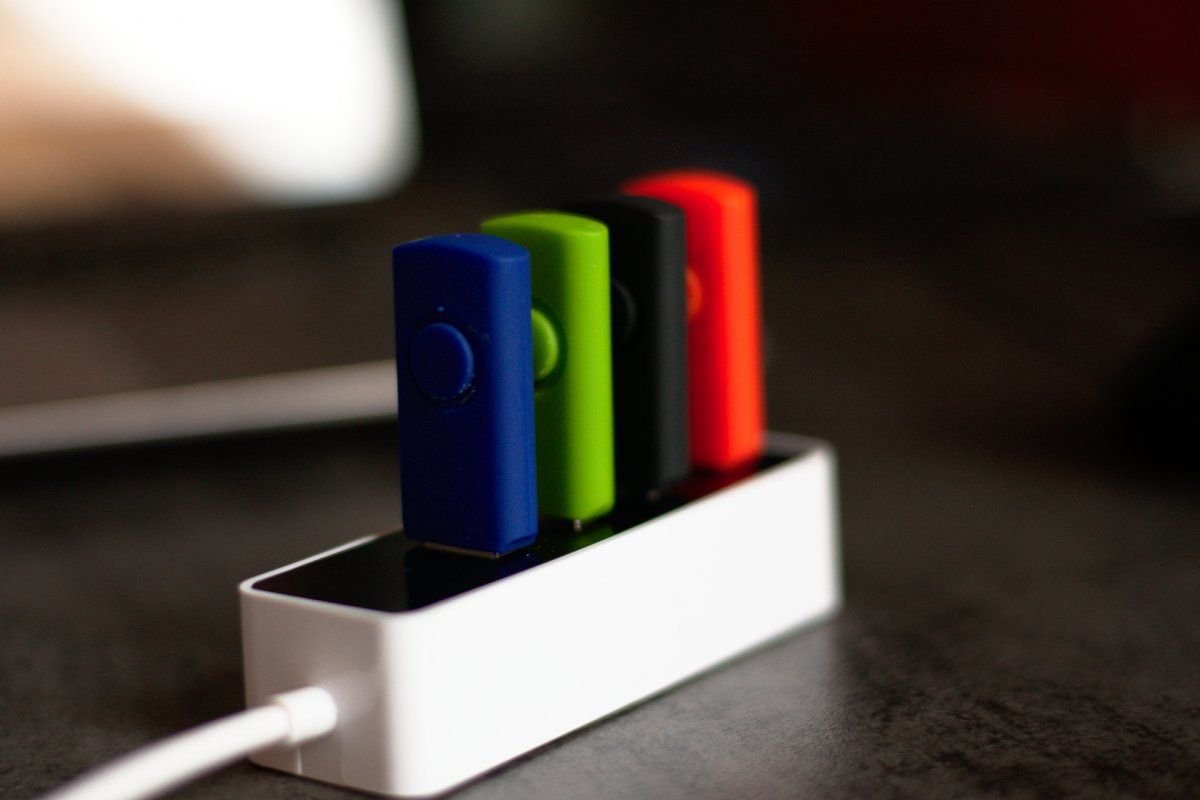I read a few articles about BTRFS and ZFS and about cheap Chinese electronics so I thought I should
combine that. So I bought the cheapest 1GB USB thumbdrives I could find on eBay. With four thumbdrives
I can test various raid setups with BTRFS and ZFS and benchmark them.
I expected the thumbdrives to be of horrible quality and very slow. One of the four thumbdrives wasn't
usable at all. It wasn't an 1GB drive but only 8.4MB so it can't even hold the metadata of these filesystems.
That said the 8.4MB drive is the quickest drive of the four.




The four screenshots above are benchmarks for the black, blue, green and orange thumbdrive. As you can
see there is a huge performance difference between these thumbdrives. I ordered 4 of the "same" USB thumbdrives
only differing in color. I opened them up to see why some are slow and some are relatively quick.



The insides for all four thumbdrives are different. They used 3 different controllers. 4 pcb layouts
and every form of flash memory they could find. On one drive you can clearly see that under the epoxy
blob is a microsd card soldered down.
One thumbdrive even uses a fake sony memorystick m2 in an actual memorystick slot.
The filesystem testing
I continued with the three working thumbdrives for testing filesystems. I connected the thumbdrives
to an USB3 hub so the USB bus speed isn't the limit.
The system I'm testing on is my zenbook running archlinux and the 4.2.1-1-ARCH kernel.
The results for the benchmarks with various ZFS and BTRFS setups:
| Filesystem | Topology | Read | Write | Notes |
|---|---|---|---|---|
| ZFS | raidz1 | 63.7 MB/s | 1.1 MB/s | |
| ZFS | mirror | invalid | 297 kB/s | I could not get the read test to disable caching in this mode. No way these thumbdrives read with 5 GB/s |
| BTRFS | raid0 | 27.7 MB/s | 7.1 MB/s | Yes, this writes the quickest, but this is striping so no redundancy and error correcting whatsoever. Not a great thing when you use the cheapest thumbdrives available |
| BTRFS | raid1 | 13.3 MB/s | 2.8 MB/s |
These are the results for the worst case scenario for these filesystems. All devices have a
slightly different size (somewhere between 900 and 1000MB) and a big range of read and write speeds.
My conclusion: you might want to use something else for storing your data than $1 - $2 USB thumbdrives from eBay.

